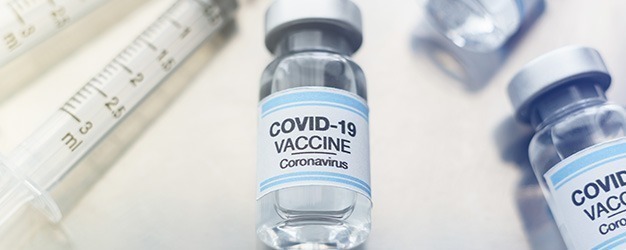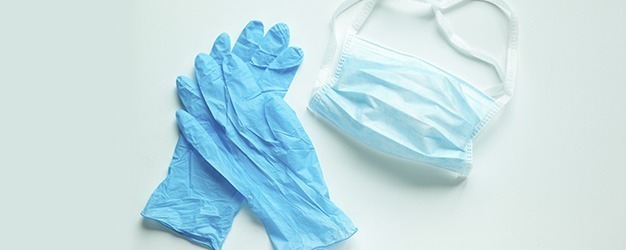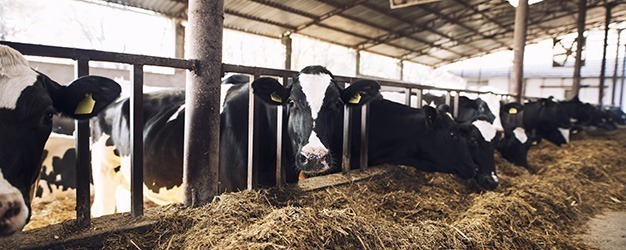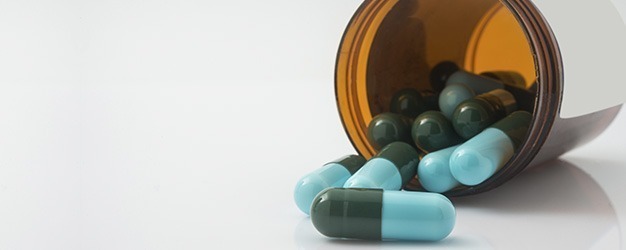Insights > Client Alerts
Client Alerts
Life Sciences Newsletter No.4 – July 2021
3 de agosto de 2021

[vc_row][vc_column][vc_column_text]Our Public and Regulatory Law team presents the fourth edition of the Life Sciences Newsletter, with a compilation of the main news and information of the area occurred in July.
Demarest’s Public and Regulatory Law team continues to monitor developments in the Life Sciences area, and is available to provide any clarification or further information on these and other topics.
Happy reading!
Read the third issue here.
[/vc_column_text][vc_empty_space height=”50px”][vc_column_text el_id=”materia1″]
CMED – Chamber of Medicine Market Regulation
Pricing procedure for vaccines and drugs to combat Covid-19
On July 2, Resolution No. 5 CTE-CMED of the Medicines Market Regulation Chamber (CMED) was published, which regulates the procedures for the analysis of Price Information Documents referring to requests for the pricing of new medicines and vaccines against Covid-19.
According to this rule, the Price Information Documents (DIP) within the scope of pricing requests will be analyzed by the Executive Secretariat of CMED (SCMED) and will be decided on by the Technical-Executive Committee. The maximum period established for the analysis is 90 days, in accordance with CMED Communication No. 10/2016. However, medicines and vaccines that have only temporary authorization for use will not be analyzed by CMED.
With regard to pricing itself, the rule states that in the analysis of the DIP, provisional prices will be established for the referred products, which will be effective for the duration that the Covid-19 pandemic prevails.
Finally, especially for medicines and vaccines intended for the National Plan for the Operationalization of Vaccinations or that are available for sale to governmental bodies, immediately after the filing of the pricing request, the products are authorized to be marketed at the required price, until CMED’s final decision.[/vc_column_text][vc_empty_space height=”50px”][vc_column_text el_id=”materia2″]
CMED – Chamber of Medicine Market Regulation
Public Consultation – Resolution for drug pricing
On July 26, the Ministry of Economy, through the Department of Advocacy for Competition, opened a Public Consultation to discuss the draft CMED Resolution that addresses the criteria for setting prices of new products and newly introduced medicines.
The draft Resolution covers situations involving expansion of drug use, new indications, changes in concentration of active ingredients, new pharmaceutical forms in the country, new association of active ingredients already existing in the country and new association in which one of the active ingredients is new in the country.
In this way, from the classification of products into nine categories, the Resolution establishes the mandatory documentation and the procedure for the pricing process with CMED. The deadline for submitting contributions to the public consultation is August 27, 2021. Contributions can be sent to the email: cogis.seae@economia.gov.br.[/vc_column_text][vc_empty_space height=”50px”][vc_column_text el_id=”materia3″]
MAPA – Ministry of Agriculture, Livestock and Food Supply
Accreditation of post mortem service providers
On July 5, the Ministry of Agriculture, Livestock and Food Supply (“MAPA”) published Ordinance No. 345/2021, which establishes the parameters for the “accreditation of legal entities classified as service providers of accessory, instrumental or complementary activities to post-mortem inspection”.
Such services are directly linked to the obligations of establishments registered within the Department of Inspection of Animal Products, under the Federal Inspection Service (SIF), (Decree No. 9,013/2017), which export to countries that require specific post-mortem auxiliary activities, consisting of the provision of outsourced personnel to assist in the execution of inspection work.
As a result, for accreditation to be obtained the following is required : the submission of the form attached to the Ordinance, a term of commitment to meet the technical demands of the contracting party’s inspection team, work plan, personnel training plan and the Responsible Technician’s ART (Technical Responsibility Certificate) from the Veterinary Council.
This documentation must be forwarded to a regional unit of the Inspection Service for Products of Animal Origin or directly to the Department of Inspection of Products of Animal Origin. This entity, in turn, will analyze the documentation and issue an opinion for granting accreditation.[/vc_column_text][vc_empty_space height=”50px”][vc_column_text el_id=”materia4″]
Federal legislation
Authorization for veterinary vaccine factories to produce Covid-19 vaccines
On July 16, Law No. 14187/2021 was published in order to allow establishments producing veterinary vaccines to manufacture supplies and vaccines aimed at immunization against covid-19. This Law represents, therefore, an important emergency advancement for the swift continuation of vaccination in Brazil.
According to the legislation, in order to be authorized to produce vaccines for human use, establishments must carry out all phases of production in places physically separate from the industrial structure linked to veterinary activities. Specifically for the storage phase, if it is not possible for storage to occur in a separate environment, the vaccines against Covid-19 may be stored together with the veterinary immunization agents, upon evaluation and prior approval by the federal health authority (ANVISA).
It is noteworthy that, while such establishments produce inputs and immunizing agents against Covid-19, such specific activities must be subject to ANVISA’s guidelines, control and inspection under the terms of Law No. 9,782/99.
Finally, the text guarantees that there is no shortage of vaccines for veterinary use, as it conditions the authorization of immunizing agents against Covid-19 to the observance of the productive capacity of the applicant establishments.[/vc_column_text][vc_empty_space height=”50px”][vc_column_text el_id=”materia5″]
Bill of Law
Simplification of authorization to manufacture PPE’s
In yet another emergency effort to help the supply of essential products to fight the Covid-19 pandemic, the Economic Development Commission of the Chamber of Deputies approved a favorable opinion on Bill of Law 2924/20. The text of this Bill aims to allow companies that have different corporate purposes to produce Personal Protective Equipment (PPE) intended to protect against risks that could threaten safety and health at work during the pandemic.
With regard to the rules themselves, the text states that the registration of companies within the National Health Surveillance Agency (“ANVISA”) will occur in the simplified modality and will not depend on the applicant’s corporate purpose, provided that the technical requirements for carrying out the activity are observed.
At this moment, the Bill also establishes that, as of its publication, ANVISA will have 30 days to issue an internal rule that reduces the certification and registration deadlines for manufacturers and importers of PPE.
In addition to the regulatory aspect, the Bill brings with it a great advantage in the tax area, a fact that would further stimulate the proper supply of these essential products to fight the Covid-19 pandemic.
Finally, it should be noted that the aforementioned Bill is still pending analysis by the Committees of Social Security and Family; of Finance and Taxation; and of the Constitution and Justice and Citizenship, despite being in the final stages of being passed.[/vc_column_text][vc_empty_space height=”50px”][vc_column_text el_id=”materia6″]
MAPA – Ministry of Agriculture, Livestock and Food Supply
MAPA approves regulation for humane slaughter
On July 23, the Ministry of Agriculture, Livestock and Food Supply (“MAPA”) published Ordinance No. 365/2021, which regulates the humane methods of pre-slaughter management and the slaughter of animals for the meat and fish markets. This Ordinance has the important objective of updating the methods allowed in Brazil that involve the slaughter of animals, in order to avoid unnecessary pain and suffering.
As a result, the Ordinance provides for a range of requirements, from basic animal protections, such as the prohibition of torture and beating, to very specific requirements on the mandatory equipment and structures to be used as regards transport vehicles and slaughterhouses.
Among such mandatory requirements, it should be highlighted, first, that with regard to stalls, pens and corrals, sufficient space must be observed for the free movement of housed animals, as well as compliance with international welfare standards. In the case of transport vehicles, sufficient space is required for the animals to lie down, at the same time, without overlapping.
Next, the Ordinance requires that the places of accommodation must contain sufficient water and food, in containers compatible with the species housed, as well as the necessary equipment for the thermal comfort of the animals and for stunning in the case of emergency slaughter.
In addition, the requirement of a person responsible for animal welfare in all slaughter establishments is expressly provided for. This figure must be trained in humane handling during slaughter and pre-slaughter, and will have autonomy in decision-making on matters within his competence.
With regard to slaughter establishments, such facilities are required to monitor aspects such as the adequacy of transport vehicles, the adequate period for fasting the animals, conditions on arrival after transport and the effectiveness of the stunning method.
Regarding the slaughter itself, the Ordinance addresses a significant concern with the methods and processes of stunning, requiring that equipment for this purpose must be adapted or specific for each species to be slaughtered.
In its final provisions, Ordinance No. 365 states that non-compliance with the provisions of the rule culminates in the applicable administrative sanctions, without prejudice to the appropriate civil or criminal sanctions. Finally, it establishes a period of one year for slaughter companies, already registered, to adapt to the new parameters.[/vc_column_text][vc_empty_space height=”50px”][vc_column_text]
ANVISA – National Health Surveillance Agency
Extension of special rules for importing and registering health products in the pandemic
Once again, the National Health Surveillance Agency (“ANVISA”) extended the validity of the exceptional rules that ease the sanitary requirements for the registration and importation of medicines and products essential to fight Covid-19.
The rules regarding the authorization to import unregulated drugs and devices, which are contained in RDC 483/2021, were extended until September 14, 2021. The special registration rules, present in RDC 484/2021, were extended until December 31, 2021.
For more information on the specific content of these rules, please refer to the first and second editions of our Life Sciences Newsletter.[/vc_column_text][/vc_column][/vc_row]
Áreas Relacionadas











